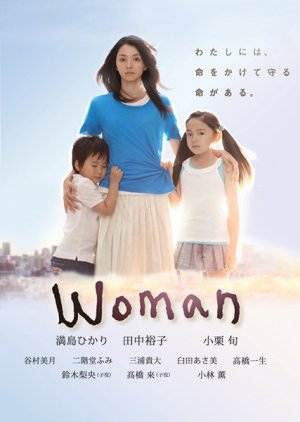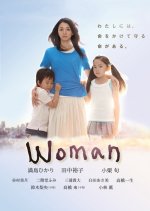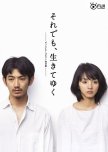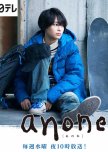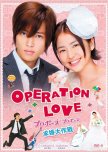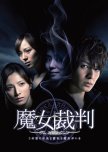 Starter Kit: Japan
Starter Kit: Japan After unexpectedly losing her husband Shin, Koharu works hard to provide for her two children, Nozomi and Riku, despite facing financial hardships. When denied assistance at the social welfare office, Koharu reveals her estrangement from her mother Sachi, who left her and her father two decades ago. The welfare office contacts Sachi, who, surprising Koharu, expresses willingness to offer support. This revelation prompts Koharu to consider reuniting with her long-lost mother after two decades of estrangement. (Source: MyDramaList) Edit Translation
- English
- magyar / magyar nyelv
- dansk
- Norsk
- Native Title: ウーマン
- Also Known As: Woman: My Life for My Children
- Screenwriter: Sakamoto Yuji
- Director: Mizuta Nobuo
- Genres: Life, Drama, Family
Cast & Credits
- Mitsushima Hikari Main Role
- Suzuki Rio Main Role
- Takahashi Rai Main Role
- Oguri Shun Support Role
- Tanaka Yuuko Support Role
- Kobayashi Kaoru Support Role
Reviews

Despite flirtation with the idea of what it means to be a woman, core themes center around poverty, motherhood, and family (fractured and/or 'whole'). Many will find parallels with real life, uncanny sparks of the every day between each character interaction or plot motion. Though the story can be depressing, sometimes unrelentingly so, rays of hope peek through from unlikely places. The slow pace also works well, allowing for quiet sequences and subtle explosions to be worked in without unevenness. Unfortunately, well written as I found it, there were times an event or character seemed superfluous. A glaring example of this would be the welfare worker and his wife. Their tale felt unimportant and tacked on, the purpose served more thematic than necessary -- and even then, other characters had already fulfilled this aspect well. The Shiori character was perhaps a bit underdeveloped in the end, but her place in the plot was decidedly important.
Where have they been hiding Mitsushima Hikari? If the rest of her work is as vibrant as her portrayal of Koharu, it wouldn't be far-fetched to name her among the best actresses in Japan. Mitsushima-san delivers lines as if they were second nature; her gestures and body language are subtle and real. She positively carries this drama, though her work brought up the performances of others as well. The young ones depicting the Aoyagi children are also an absolute joy to watch. More than just precocious cuties paid to be tiny versions of adults, each of them felt like actual children. They babbled and asked questions endlessly, they cried without reason, they understood more and less than adults might want. This was especially true of Suzuki Rio, as the older Nozomi.
Fans of Oguri Shun should be happy with his solid performance, but will not want to watch Woman primarily for his sake. Shun-san is primarily seen through flashbacks, and though his character is important enough to warrant a spot as a main character, it is in the same way as a literary character might be labelled as such. The absence of his Shin is what pushes the basic conflict. There is a particular scene including him which had me bawling, though.
Musically, the drama stands strong. Orchestrations felt well-placed, especially in those scenes meant to be pivotal. These are also marked by unusual but interesting cinematographic sequences, such as an intense slow motion bit, set to an older song called "Believe." These instances were a little disconnected from the rest of the drama, but strangely effective. Though the sound of the theme song ("Voice" by androp) does not initially appear suitable, the lyrics tell another tale.
Was this review helpful to you?

And let me tell you about the acting, it's beyond incredible, you'll basically forget you're watching actors doing a terrific job. Not just Mitsushima Hikari, but everyone involved, especially Suzuki Rio because damn this little girl's acting is so great oooooh man.
The music is fantastic too (if you're waiting for something negative in this review, well I can't think of anything really), there were many moments where I got goosebumps because music and cinematography worked so well together.
I give this a very high rewatch value because due to its high quality I could probably watch this years from now and still be blown away. I'll have to let this one sink in for quite some time, though I feel like this is a drama where I can go back and rewatch and discover so many new things.
But first I have to watch more dramas written by Sakamoto Yuji because oh man ooooh man oh man.
Was this review helpful to you?

